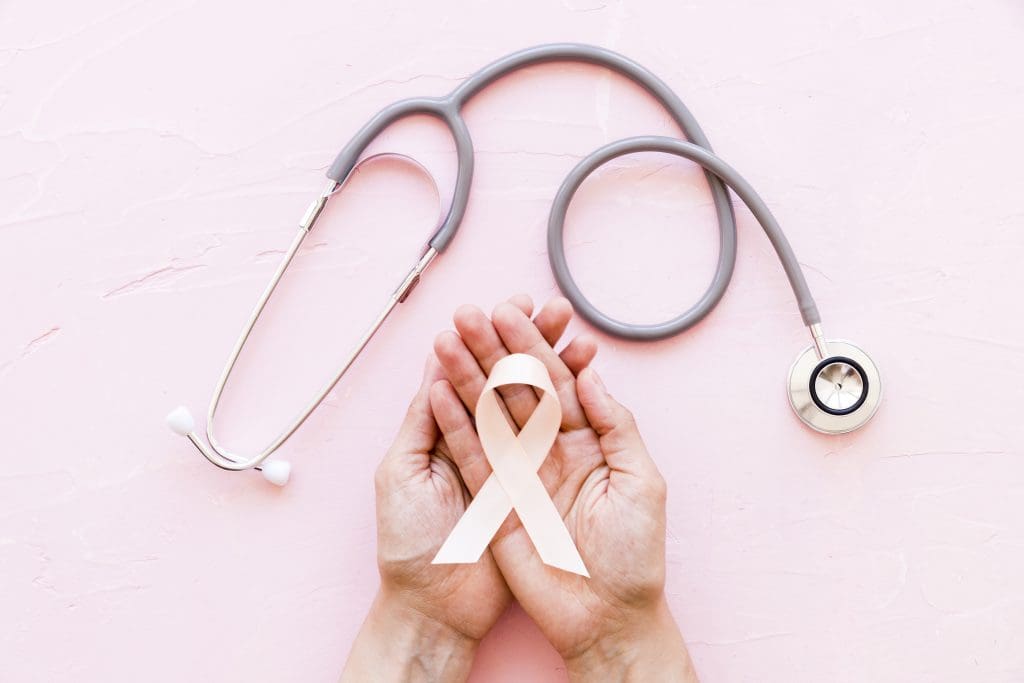Do you lose weight with ovarian cancer? Many people worry about unexplained weight loss. It can signal health problems, like ovarian cancer. The question of whether you can lose weight with this disease is tricky.
Looking into how ovarian cancer and weight loss are linked is key. This disease shows up differently in everyone. Some may lose weight, while others won’t. We’ll examine how ovarian cancer symptoms affect the body.

Key Takeaways
- Unexplained weight loss can be a symptom of ovarian cancer.
- The relationship between ovarian cancer and weight loss is complex.
- Ovarian cancer symptoms can vary from person to person.
- Understanding these symptoms is key for early detection.
- We will explore the various aspects of ovarian cancer and its effects on the body.
The Nature of Ovarian Cancer and Body Changes
Understanding ovarian cancer is key to spotting its effects on the body. It’s a serious issue for women globally, causing big changes in how the body works and overall health.
What is Ovarian Cancer?
Ovarian cancer starts in the ovaries, which are key female organs for egg production. There are different types, with epithelial ovarian cancer being the most common. It begins in the outer layer of the ovaries.
Other types, like germ cell tumors and stromal tumors, are less common but important. Knowing the type helps doctors choose the right treatment.
How Cancer Affects Normal Body Functions
Cancer cells fight for nutrients and energy, causing metabolic changes. In ovarian cancer, the tumor can alter how the body uses nutrients and affects weight.
It also causes symptoms like bloating, abdominal swelling, and pelvic pain. These symptoms can harm a patient’s health and weight. The disease can also change hormones and affect digestion, leading to weight changes.
As ovarian cancer gets worse, it can cause cachexia. This is a condition with weight loss, muscle wasting, and loss of appetite. Managing these changes is a big part of treating ovarian cancer.
Ovarian Cancer Weight Loss: Patterns and Significance
It’s important to know how weight loss happens in ovarian cancer patients. This knowledge helps doctors diagnose and plan treatments. Weight loss can be a sign of the disease or a result of it, depending on when it happens.
Weight Loss as a Symptom vs. a Consequence
Weight loss might be one of the first signs of ovarian cancer. It often comes with other symptoms like bloating and pelvic pain. But, it can also happen because of the disease getting worse or because of treatment side effects.
Weight Loss as a Symptom: Sometimes, unexplained weight loss is the first sign of ovarian cancer. This happens because cancer can mess with how we eat and our metabolism.
Weight Loss as a Consequence: When ovarian cancer gets more advanced or when treatments start, weight loss can become more serious. This is because of less appetite, changes in how we metabolize food, and eating problems.
When Weight Loss Typically Occurs in Disease Timeline
Weight loss can happen at different times in ovarian cancer. But, it’s more common and serious in the later stages.
| Disease Stage | Typical Weight Loss Patterns |
| Early Stage (Stage 1-2) | Minimal or no significant weight loss; occasional weight gain due to fluid retention |
| Advanced Stage (Stage 3-4) | Significant weight loss due to cancer cachexia, reduced appetite, and treatment side effects |
Knowing when weight loss is likely to happen helps doctors keep a closer eye on patients. They can step in when needed.
Common Causes of Weight Loss in Ovarian Cancer Patients
Weight loss in ovarian cancer patients comes from many sources. These include changes in how the body uses energy, appetite, and the effects of treatment. Knowing these factors helps manage the disease better.
Metabolic Changes Due to Cancer
Ovarian cancer changes how the body uses energy. The tumor makes the body work harder to keep up with normal functions. This can cause weight loss, even if the patient eats the same amount.
The changes in metabolism are complex. For example, the tumor can change how the body uses nutrients. This can lead to cachexia, a condition with weight loss, muscle loss, and tiredness.
| Metabolic Change | Effect on the Body |
| Increased energy expenditure | Weight loss despite normal appetite |
| Altered nutrient utilization | Muscle atrophy and fatigue |
Appetite Loss and Dietary Changes
Many ovarian cancer patients eat less because they don’t feel like eating. Nausea and changes in taste make food less appealing.
“The loss of appetite is not just about not wanting to eat; it’s about the body’s reduced ability to signal hunger due to the disease and its treatment.”
A healthcare professional’s insight
We suggest patients work with a dietitian. They can create a meal plan that is both healthy and tasty. This helps manage weight loss and ensures the patient gets the nutrients they need.
Treatment-Related Weight Loss
Treatments for ovarian cancer, like chemotherapy and radiation, can cause weight loss. Chemotherapy can cause nausea, vomiting, and changes in taste, making it hard to keep weight on.
Managing these side effects is key. Anti-nausea medications and dietary changes can help prevent weight loss from treatment.
- Medications to manage nausea and vomiting
- Dietary changes to improve nutrient intake
- Working with a healthcare team to adjust treatment plans as needed
Early-Stage Ovarian Cancer and Weight Patterns
The link between early-stage ovarian cancer and weight changes is complex. While big weight loss is often seen in advanced cancer, early-stage ovarian cancer’s effect on weight is more subtle.
Typical Weight Changes in Stage 1 and 2
In the early stages of ovarian cancer (stages 1 and 2), weight changes are not as obvious. Some patients might see a slight weight loss or gain. This can happen for many reasons.
These reasons include:
- Metabolic changes caused by the cancer
- Hormonal fluctuations
- Changes in appetite or eating habits
It’s important to remember that these changes can be mild. They might not always mean something serious. But, any unexplained weight changes should be talked about with a healthcare provider.
When Weight Loss Is Not a Primary Symptom
In early-stage ovarian cancer, weight loss is not always the main symptom. Some patients might not see any significant weight changes. Instead, they might feel pelvic pain, bloating, or changes in bowel habits.
It’s vital to watch your overall health and tell your healthcare provider about any unusual symptoms, even if weight loss is not a big deal. Catching ovarian cancer early is key to effective treatment and management.
Advanced Ovarian Cancer and Significant Weight Loss
Weight loss in advanced ovarian cancer is more than just a symptom. It shows how the disease is getting worse and how the patient is doing. As ovarian cancer moves to stages 3 and 4, the body needs more energy, leading to weight loss.
Weight Loss Patterns in Stage 3 and 4
In later stages of ovarian cancer, weight loss gets worse. This is due to changes in how the body uses energy, less appetite, and the tumor’s effects. Patients often see their weight slowly go down, and treatment side effects can make it worse.
It’s key to watch weight changes closely and adjust treatment plans to avoid too much weight loss.
Cancer Cachexia in Late-Stage Disease
Cancer cachexia is a condition where patients with cancer lose weight, muscle, feel tired, weak, and lose appetite. In late-stage ovarian cancer, cachexia can really hurt a patient’s quality of life and chances of survival.
Cachexia is not just about losing weight; it’s a complex issue with metabolic changes, inflammation, and less physical function. To manage cachexia, we need a full approach, including good nutrition, exercise, and sometimes medicine to help with appetite or balance.
We know how important it is to tackle cachexia in care plans for advanced ovarian cancer patients. We aim to offer support that helps with more than just fighting cancer.
Distinguishing Between Normal Weight Fluctuations and Cancer-Related Loss
It’s important to tell the difference between normal weight changes and weight loss due to cancer. We often see weight changes because of diet, exercise, or hormones. But, unintentional weight loss that doesn’t stop can mean there’s a serious health issue, like ovarian cancer.
Knowing how cancer-related weight loss acts can help spot ovarian cancer early. It’s not just about how much weight is lost. It’s also about how weight loss happens and the symptoms that come with it.
Characteristics of Cancer-Related Weight Loss
Cancer-related weight loss often comes with other symptoms. It can look different from regular weight loss. Some key signs include:
- Progressive weight loss: Weight that keeps going down without a reason.
- Loss of appetite: Not wanting to eat or feeling full too fast.
- Changes in metabolism: Cancer can change how the body uses energy, leading to weight loss.
- Muscle wasting: Losing muscle mass, even if you’re gaining weight from fluids.
These signs might mean you’re losing weight because of cancer. But, you should always talk to a doctor to be sure.
Other Medical Conditions That Cause Weight Loss
While cancer is a big worry for unexplained weight loss, other health issues can also cause it. These include:
| Condition | Characteristics |
| Hyperthyroidism | Too much thyroid hormone makes you lose weight, feel hungrier, and have other symptoms. |
| Diabetes | Not controlling diabetes can make you lose weight because your body can’t use glucose well. |
| Gastrointestinal disorders | Issues like Crohn’s disease or ulcerative colitis can cause weight loss because your body can’t absorb nutrients. |
Getting a full medical check-up is key to finding out why you’re losing weight.
Digestive Symptoms That Accompany Weight Loss in Ovarian Cancer
Patients with ovarian cancer often face digestive issues like bloating, nausea, and bowel changes. These problems can really affect their life quality and health.
Bloating and Abdominal Distension
Bloating is a common symptom in ovarian cancer. It’s caused by fluid buildup in the belly, known as ascites. This can make eating hard and cause pain. Managing bloating well is key to help patients eat better and feel better.
- Eating smaller, more frequent meals can help.
- Stay away from foods that make bloating worse, like carbonated drinks and high-fiber foods.
- Medicines can also help reduce discomfort and improve digestion.
Nausea and Vomiting
Nausea and vomiting are common in ovarian cancer patients. They can be caused by the disease or its treatment. These symptoms can lead to dehydration, electrolyte imbalances, and malnutrition if not managed right.
Ways to help with nausea and vomiting include:
- Anti-nausea medicines from doctors.
- Eating bland foods and avoiding strong smells can help.
- Try relaxation techniques like deep breathing and meditation.
Changes in Bowel Habits
Ovarian cancer can also change bowel habits, leading to constipation or diarrhea. These changes might be due to the tumor’s pressure or treatment side effects.
Managing bowel habits means:
- Eating a high-fiber diet to help regular bowel movements.
- Drinking plenty of water to avoid constipation.
- Using medicines for diarrhea or constipation when needed.
It’s important to understand and tackle these digestive symptoms for ovarian cancer patients. By managing these symptoms well, healthcare providers can help improve patients’ nutrition, quality of life, and overall health.
Chemotherapy and Radiation Effects on Weight
Chemotherapy and radiation therapy can greatly affect a patient’s weight. These treatments are key in fighting ovarian cancer but often cause side effects. These side effects can lead to weight loss or changes. It’s important for patients to understand these effects and how to manage them to stay healthy during treatment.
Side Effects That Contribute to Weight Loss
Chemotherapy and radiation therapy can cause several side effects that contribute to weight loss. These include:
- Nausea and Vomiting: These symptoms can make it hard for patients to eat and keep food down, leading to weight loss.
- Loss of Appetite: Cancer treatments can make patients less hungry, making it hard to eat enough calories.
- Changes in Taste: Some treatments can change how food tastes, making it less appealing and leading to eating less.
- Fatigue: Feeling very tired can make it hard to cook or eat regularly.
Managing Treatment-Related Weight Changes
Managing weight changes during cancer treatment involves making dietary and lifestyle changes. Sometimes, medical interventions are needed. Here are some strategies:
- Nutritional Counseling: Working with a dietitian can help patients create a meal plan that meets their nutritional needs during treatment.
- High-Calorie Foods: Eating high-calorie, nutrient-dense foods can help maintain or gain weight.
- Frequent Meals: Eating smaller, more frequent meals can be easier on the digestive system and help maintain nutrition.
- Supplements: In some cases, nutritional supplements may be recommended to ensure patients are getting enough nutrients.
Surgical Treatments and Their Impact on Weight and Metabolism
Surgical treatments for ovarian cancer can change a patient’s weight and how their body uses energy. It’s important to understand these changes to manage health during and after treatment. Several factors play a role in these changes after surgery for ovarian cancer.
Post-Surgical Recovery and Weight Fluctuations
After surgery, patients may see their weight change. These changes can be due to different reasons like changes in appetite, water retention, and less activity. It’s important to know that these changes are usually short-term and will get better as recovery progresses.
During recovery, it’s key to eat a balanced diet. This diet helps with healing and keeps nutritional levels steady. It’s also important for recovery and can help with weight changes.
Metabolic Changes After Surgery
Surgery for ovarian cancer can also change how the body uses energy. The removal of ovarian tissue can affect hormone levels, which can change metabolism. Patients may need to make changes in their diet and exercise to handle these changes well.
The stress of surgery can also affect how fast the body uses energy. As the body heals, it makes changes to support recovery. It’s important to watch and adjust to these changes with the help of healthcare professionals to keep a healthy weight and metabolism.
Understanding how surgery can affect weight and metabolism helps patients prepare for recovery. This approach includes medical care, nutrition support, and making lifestyle changes.
Warning Signs: When Weight Loss May Indicate Ovarian Cancer
Knowing the warning signs of ovarian cancer can help you get medical help early. Ovarian cancer symptoms can be hard to spot because they’re similar to other health issues. But, unexplained weight loss is a big warning sign.
Unexplained Weight Loss as a Red Flag
Unexplained weight loss is a big warning for many health problems, including ovarian cancer. This weight loss happens without any obvious reason, like eating less or exercising more. For ovarian cancer, losing weight without reason is very important, even more so if you have other symptoms.
Accompanying Symptoms to Watch For
While losing weight without reason is scary, look out for other signs too. These signs might mean you have ovarian cancer. They include:
- Pelvic or abdominal pain
- Bloating or increased abdominal girth
- Difficulty eating or feeling full quickly
- Urinary symptoms, such as urgency or frequency
Seeing several of these symptoms together means you should see a doctor.
When to Seek Medical Evaluation
If you’re losing weight without reason and have other symptoms, see a doctor. Catching ovarian cancer early can really help with treatment.
| Symptom | Description | Action |
| Unexplained Weight Loss | Losing weight without changes in diet or exercise | Consult a doctor if persistent |
| Pelvic or Abdominal Pain | Frequent or persistent pain in the pelvic or abdominal area | Seek medical evaluation |
| Bloating or Increased Abdominal Girth | Noticeable bloating or increase in abdominal size | Discuss with a healthcare provider |
Knowing these warning signs and talking to your doctor can help find ovarian cancer early. This can lead to better treatment and outcomes.
Nutritional Strategies for Managing Cancer-Related Weight Loss
Nutritional support is key for ovarian cancer patients dealing with weight loss from treatment. Good nutrition helps manage weight, boosts health, and strengthens the body against cancer treatment.
High-Calorie, Nutrient-Dense Foods
Eating foods high in calories but full of nutrients is vital for ovarian cancer patients losing weight. These foods give the energy and nutrients needed without needing to eat a lot. This is helpful for patients who have a hard time eating because they’re not hungry.
- Nuts and seeds, such as almonds and chia seeds
- Dried fruits, like dates and apricots
- Avocados and olive oil
- Full-fat dairy products, including cheese and whole milk
- Protein-rich foods like eggs, fish, and poultry
Meal Planning and Preparation Tips
Good meal planning and preparation are essential for a healthy diet during ovarian cancer treatment. Here are some tips:
- Plan meals ahead to meet nutritional needs.
- Make meals easy to eat, like soups and smoothies.
- Use herbs and spices to add flavor without extra salt or sugar.
- Eat smaller, more frequent meals to help with appetite and digestion.
Working with a Dietitian During Treatment
Working with a registered dietitian offers personalized nutrition advice. A dietitian can create a meal plan that addresses weight loss and manages treatment side effects. They ensure the patient gets enough nutrients.
“A registered dietitian can make a significant difference in the nutritional well-being of ovarian cancer patients, helping them navigate the challenges of treatment-related weight loss.”
By using these nutritional strategies, ovarian cancer patients can manage weight loss better. They can also improve their health and stay strong during treatment.
Medical Interventions for Severe Weight Loss
When ovarian cancer causes severe weight loss, medical help is key. Losing a lot of weight can really hurt a patient’s life quality and survival chances. So, it’s very important to tackle this issue in cancer care.
Appetite Stimulants and Medications
Doctors often use appetite stimulants and medicines to help. These can make a patient hungrier and help them eat better. For example, megestrol acetate can boost appetite in cancer patients. These medicines can help patients eat enough to stay healthy and do well with their treatment.
Other medicines, like corticosteroids, can also help with appetite and nausea. But, doctors usually avoid them for a long time because of side effects. The right medicine depends on the patient’s cancer, health, and how far the cancer has spread.
“The use of appetite stimulants can be a game-changer for ovarian cancer patients struggling with severe weight loss, as it addresses a critical aspect of their nutritional needs.”
Nutritional Supplements and Support
Nutritional supplements are also very important. They give patients the nutrients they might miss in their diet. These supplements are great for patients who can’t eat solid foods or need more nutrients because of their treatment.
Support can include special drinks, tubes for feeding, or getting nutrients through a vein. The best choice depends on the patient’s needs and how well they can eat. It’s important to work with a dietitian or nutrition team to find the right plan.
- Nutritional counseling to optimize dietary intake
- Oral nutritional supplements to boost calorie and protein intake
- Enteral or parenteral nutrition for patients with severe nutritional deficiencies
By using appetite stimulants, nutritional supplements, and support, doctors can give patients with severe weight loss the best care. This approach helps manage weight loss and improves patients’ lives and treatment results.
The Psychological Impact of Cancer-Related Weight Loss
The psychological effects of weight loss due to cancer are very important in ovarian cancer care. Losing weight during treatment can really hurt a patient’s mental health and life quality.
Body Image Concerns During Treatment
Weight loss during ovarian cancer treatment can make patients feel bad about their bodies. Changes in shape and weight can cause insecurity and low self-esteem. It’s important to help patients deal with these feelings as part of their care.
Coping with body image issues means recognizing the emotional toll of these changes and seeking help. Patients should talk to their healthcare team or mental health experts. Support groups offer a place to share feelings and find ways to cope.
Coping Strategies for Emotional Well-being
Keeping emotionally well during treatment needs a variety of strategies. Coping strategies include mindfulness, stress management, and activities that bring joy. It’s good to explore these to find what works for each person.
Nutritional counseling is also key in managing weight loss and improving health. A dietitian can help create a nutrition plan that supports treatment and boosts emotional health.
By tackling the psychological effects of weight loss and using effective coping strategies, patients can handle the challenges of ovarian cancer treatment better.
Monitoring Weight Throughout the Cancer Journey
Tracking weight is key in managing ovarian cancer. It helps us understand how the disease affects patients. This knowledge is vital for better care and treatment results.
Keeping Track of Weight Patterns
Patients should weigh themselves regularly. Weekly or bi-weekly weigh-ins help spot changes. Keeping a log or using a mobile app is also helpful.
It’s important to note any symptoms or health changes. This helps both patients and doctors make better decisions about treatment.
Communicating Changes to Your Medical Team
Talking to your healthcare team about weight changes is essential. Report any significant weight loss or gain right away. These changes can show how the disease is progressing or how well treatment is working.
When you see your doctor, be ready to talk about your weight tracking. Share any patterns or health changes you’ve noticed. This helps doctors give you the best advice and care.
- Be prepared to discuss your weight tracking records.
- Mention any observed patterns or significant changes.
- Share other relevant health changes or symptoms.
By keeping open communication and watching weight patterns, patients with ovarian cancer get better care. This makes their journey through cancer more effective.
Regaining Weight After Successful Treatment
Getting better from ovarian cancer is just the start. After treatment, many patients struggle to regain lost weight. This journey to health and strength needs careful planning.
Timeline for Weight Recovery
How long it takes to regain weight varies. It depends on the treatment type, health, and nutrition before and after treatment. Usually, patients start to gain weight a few months after treatment ends.
It’s key to work with a healthcare team, including a dietitian. They help create a recovery plan. This plan considers nutritional needs, diet preferences, and health issues.
Healthy Approaches to Weight Restoration
It’s important to regain weight in a healthy way. Focus on foods that are full of nutrients but low in bad fats and sugars. Some tips include:
- Eating smaller, more frequent meals to manage appetite and digestion
- Incorporating high-calorie foods and supplements into the diet
- Avoiding foods that are high in empty calories or that cause discomfort
Staying hydrated and considering nutritional supplements is also vital. Always talk to your healthcare provider before changing your diet.
By choosing healthy ways to regain weight, ovarian cancer survivors can improve their health and life quality. This makes life better after treatment.
Conclusion
Ovarian cancer weight loss is a big worry for many patients. It affects their health and happiness. We’ve looked into how ovarian cancer and weight changes are linked, including the reasons for weight loss and treatment effects.
It’s key to manage weight loss well to stay strong and get better. Eating foods high in calories but full of nutrients is important. Also, using medicines to boost appetite and supplements can help.
For those with ovarian cancer, getting the right support is essential. There are resources to help with weight loss and emotional support during the cancer journey. We suggest patients work with their healthcare team to create a plan for managing weight changes.
Understanding weight loss factors and getting the right support helps ovarian cancer patients. They can better handle their treatment and recovery. For more on ovarian cancer support and weight loss management, check out trusted healthcare resources.
FAQ
What are the common signs of ovarian cancer that may be related to weight loss?
Signs include unexplained weight loss, abdominal bloating, and pelvic pain. Changes in bowel habits are also common. If these symptoms last, see a doctor.
How does ovarian cancer affect body weight?
Ovarian cancer can change metabolism and appetite, leading to weight loss. Advanced stages can cause significant weight loss due to cancer cachexia.
Is weight loss a typical symptom of early-stage ovarian cancer?
Weight loss is not a main symptom of early ovarian cancer. But, some may see weight changes for other reasons.
What is cancer cachexia, and how does it relate to ovarian cancer?
Cancer cachexia is a condition with significant weight loss, muscle wasting, and metabolic changes. It often happens in advanced ovarian cancer stages 3 and 4.
How can I manage weight loss during ovarian cancer treatment?
Eat high-calorie, nutrient-dense foods. Work with a dietitian for a meal plan. Appetite stimulants and supplements can also help.
Can chemotherapy and radiation therapy cause weight loss?
Yes, these treatments can lead to weight loss. Side effects like nausea and changes in appetite are common. Managing these is key to staying healthy.
How can I regain weight after successful ovarian cancer treatment?
Regaining weight needs a healthy, gradual approach. Focus on nutrient-dense foods. Work with a dietitian for a personalized plan.
What are the psychological impacts of cancer-related weight loss?
Weight loss can cause body image concerns, anxiety, and depression. Counseling, support groups, and stress management can help emotionally.
Why is monitoring weight important during ovarian cancer treatment?
Monitoring weight helps catch issues early. This allows for timely interventions. Keep track of weight changes and talk to your doctor.
Are there any medical interventions available for severe weight loss in ovarian cancer patients?
Yes, treatments like appetite stimulants, medications, and supplements can help. We work with patients to find the best treatment.
Can ovarian cancer treatment affect metabolism?
Yes, treatments like surgery, chemotherapy, and radiation can change metabolism. This can lead to weight and body composition changes.
How can I distinguish between normal weight fluctuations and cancer-related weight loss?
Cancer-related weight loss is significant and unexplained. It’s often with symptoms like fatigue, loss of appetite, and bowel changes.


































